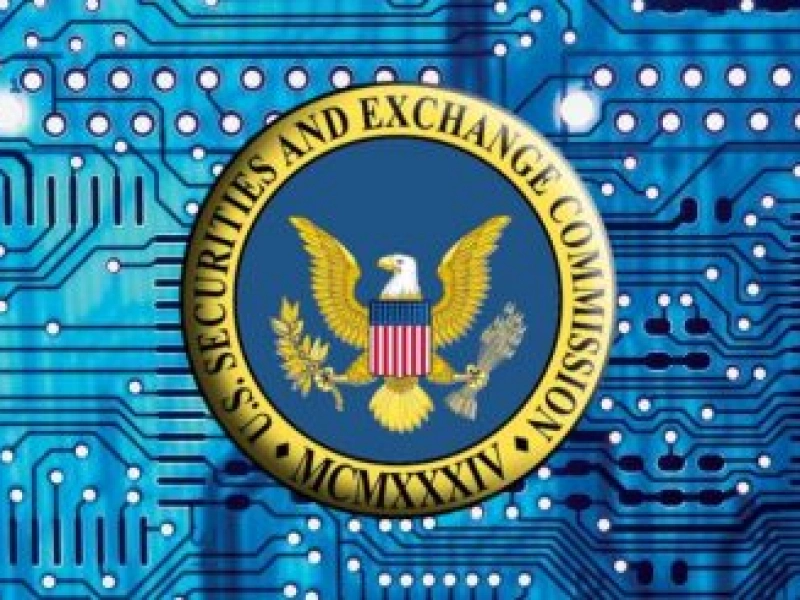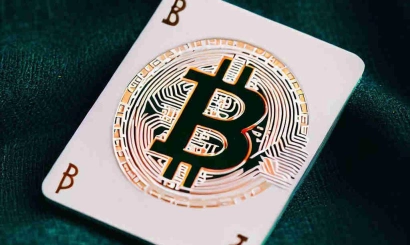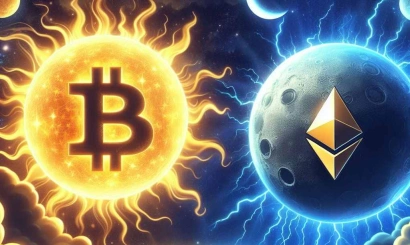"Penalties will definitely continue": what else the SEC will punish the cryptocurrency market
The head of the agency believes that most cryptocurrencies have signs of securities and fall under regulation.
In a recent interview with New York Magazine, SEC Chairman Gary Gensler shared his thoughts on cryptocurrencies and their potential regulation. The head of the agency believes that any crypto-assets, other than bitcoin, can be classified as securities on a number of grounds and fall under the relevant legislation.
Gensler speaks positively about blockchain technology, noting its transparency and resistance to hacker attacks. He says he "admires this technical creation" and sees potential in it in certain situations.
However, he is much less impressed by the idea that cryptocurrencies could become an effective means of storing value or an alternative payment mechanism. Gensler refers to the fact that economies have historically coalesced around a single monetary unit, acting as a medium of exchange, settlement, and store of value. In doing so, governments have a role in establishing and maintaining the value of their currencies, requiring their use to pay taxes and debts, both public and private.
Regulators vs. cryptocurrencies. Who will benefit from the new rules
Gensler is skeptical about the economic utility of digital money, which he calls "microcurrencies," and questions the underlying value of many tokens in the crypto market. Most crypto-assets will fail, he said, and investors should be wary of buying them based on celebrity recommendations or fear of missing out on profits.
Throughout the interview, Gensler emphasizes the need for investor protection and regulatory oversight in the cryptocurrency market. He acknowledges that innovation and change are inevitable, but stressed the importance of establishing clear rules and safeguards to protect investors and prevent fraud and abuse. The SEC is taking a closer look at the cryptocurrency market, and investors should be cautious before investing in any cryptocurrency.
The SEC's activity is justified by an increase in the number and general activity of crypto projects, commented the head of GMT Legal. The functionality of digital assets is extremely broad, and many projects can indeed endow their token with securities functions, and the SEC's direct task is to counteract their illicit trafficking. So securities regulators around the world (not just in the U.S.) will only have more work to do, and the digital marketplace is not the least of it
"U.S. regulators have a habit of not acting in the heat of the moment. They observe for a long time, simultaneously collect data on possible offenses and then begin to gradually take steps to pacify and subdue the new industry," the co-founder of ENCRY Foundation describes the agency's activities. If you look at the SEC's litigation, you can see the meticulous investigation, the overwhelming evidence, and the regulator's legal and technical savvy. Some of the lawsuits read "like detective stories," the expert notes.
Realities and risks
Some crypto-assets are "utilitarian" and cannot be recognized as securities because they do not have the corresponding function - the right to profit. Therefore, the SEC has no authority to take the entire industry under its supervision. And the so-called "Lummis-Gillibrand bill" (Lummis-Gillibrand), which is now under consideration, divides the supervisory powers between the SEC and the CFTC (Commodity Futures Trading Commission). This suggests that the legislature is not going to lump crypto-assets under one definition and understands the difference.
"In most cases, the main question is whether the investor expected to make a profit when he bought the token, or whether he was motivated by other reasons. If he expected to, it's highly likely the token will be recognized as a security."
It is almost impossible to circumvent sanctions by U.S. regulators, Nekrasov explains. They consider it their competence to investigate all the cases where there are some connections with the USA, for example, when an American investor suffered, even if he did not make any claims to the project that was sanctioned. In general, everything is going to tighten crypto regulation both in the U.S. and in the rest of the world
"Right now, the hottest topics for discussion are possible prosecution of the Binance exchange for insufficient enforcement of anti-money laundering laws and the likely tightening of regulation for staplecoin issuers like Tether," commented Nekrasov, "Of course, if market giants like Tether or Binance fall, the market will react negatively, bitcoin exchange rate will collapse. But bitcoin showed many times that it can take such challenges and it will take it now.
It's complicated.
Tugarin identifies three reasons for the difficulty of creating market-appropriate regulation. Firstly, in his opinion, the legal system is "rather conservative", the regulators are guided by the old mechanisms and rules when creating a new model. The head of GMT Legal believes that innovative approaches are necessary for innovative solutions and technologies, including the creation of a legal framework. Creation of advanced regulatory model will be able to transform the legal base, including judicial practice. Among other reasons the expert names the long procedure of adoption of bills and the lack of qualified specialists.
Penalties "will definitely continue." A number of new requirements for providers of digital assets (Virtual Asset Service Provider, VASP) are created, many jurisdictions are beginning to create new requirements to form a legal area of interaction, but all companies are ready to comply with them, so "sanctions are inevitable."
The main difficulty with regulating cryptocurrencies is that they are "ideologically and architecturally" designed to resist censorship. "Any regulator is a censor. Regulation goes against the very idea of cryptocurrencies and decentralization. That's the difficulty," the expert explains.
- OKX token exchange to recover $2 million from creators of CELT token for price manipulation
- Japan to launch pilot testing of digital currency system in April
- Hackers who stole over $300k fake the website of a major cryptocurrency conference
- Bybit CEO: cryptocurrencies will be widespread in two years
- Bored Ape Yacht Club creators to launch NFT collection in the bitcoin network
- Redefining the NFT Market: How Blur Changed the Game
- More than 30 global brands will participate in Metaverse Fashion Week




_410x245_00e.webp)


